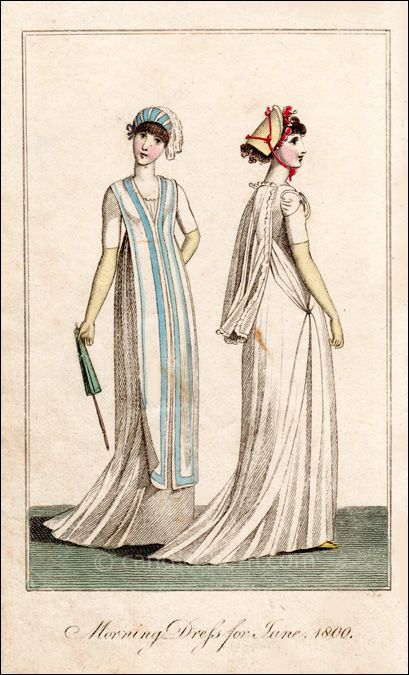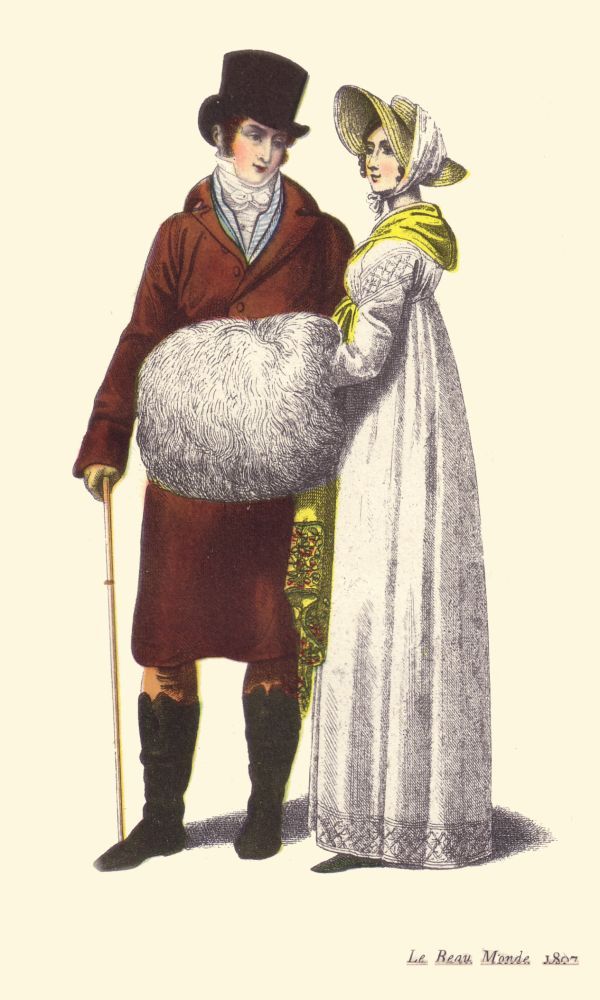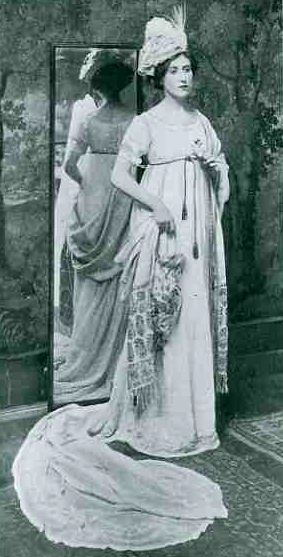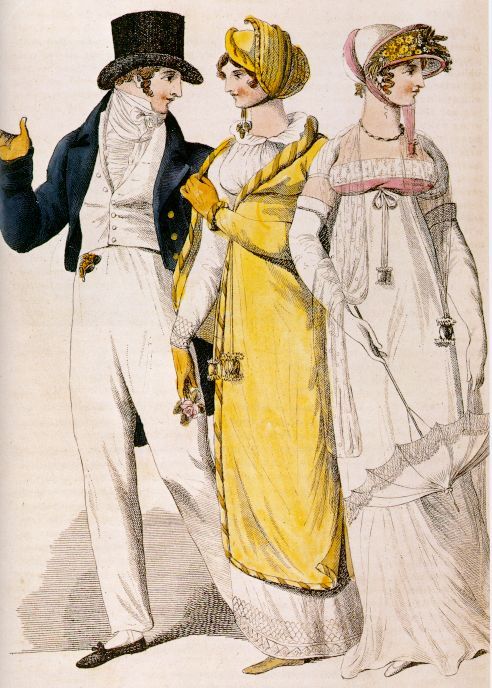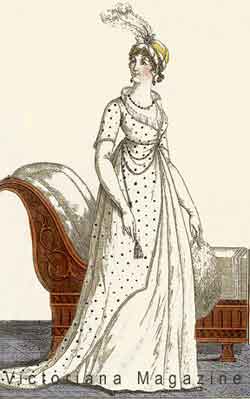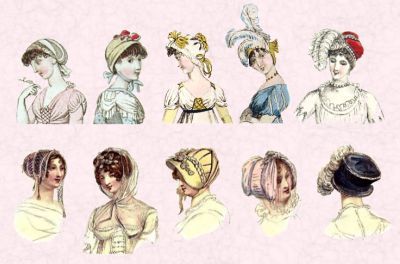1800 - 1809
EMPIRE LINES
Fashion magazines produced hand-colored plates for each month, specifying whether a dress was best for morning, afternoon, or evening wear, or designed for a special occasion.
In France the so-called Empire line had been fashionable since the 1790s (Napoleon became emperor in 1804).
This simple style was inspired by classical Greek and Roman statuary, where figures were draped in fabric with minimal ornamentation.
Waistlines were high and skirts had short trains until 1807 when straighter lines were favored.
The palette at this time was white or pastel shades, although trim and accessories could add brighter accents.
Corseting was unboned but corded corsets separated the breasts and controlled waist and hips with back lacing.
Dresses with short sleeves in simple cotton muslin required stoles and capes or pelisses to provide warmth.
Some dresses were overlaid with layers of lace and gauze.
Gradually, more exotic accessories became available, such as parasols and embroidered shawls from India.
GETTING DRESSED
A women of substance required a lady’s maid to help her dress, particularly to get her into her corset.
In this period corsets were long line and unboned, and worn over a linen shift called a chemise, drawers - of linen, cotton, or stockinette - and stockings with decorative embroidery.
The maid would then assist with the sleeveless dress, which was filmy and clinging, and put on jewelry as required before helping to curl and pin her mistress’s hair under a bonnet or a bandeau trimmed with feathers.
公元1800 - 1809年
帝国系列
时尚杂志每个月推出手绘色板,指导一件礼服最适合在上午,下午或是晚间穿着,或者推出一些为特别场合而设计的款式。
在法国,自十八世纪90年代起称呼的帝国系列就是时髦的象征(拿破仑在1804年称帝)。
这种简单风格是受到古典希腊语罗马雕像的启发,穿着者被垂坠的面料包围,佩戴极少的饰物。
腰线很高,裙摆伴随短拖尾,直到1807年直线条变得非常受欢迎。
这段时期的色调以白色或柔和色调为主,裁剪与配饰可以作为提亮。
紧身胸衣是无骨的,但也不再将胸部包裹在内了,只利用背带调整腰部与臀部。
简洁的棉质薄纱短袖长裙,需要披肩和斗篷来提供温暖。
一些礼服裙覆盖着花边与网纱。
渐渐地,越来越多异国情调配饰称为可能,例如遮阳伞与披肩都来自于印度。
打扮梳妆
女性需要一位女佣来帮助她装扮,特别是帮助穿上紧身胸衣。
在这个时期紧身胸衣是长款且无骨的,伴随一层亚麻里衬我们称之为chemise的衬裙,以及装饰刺绣的袜子。
女佣之后会协助穿上朦胧的无袖裙装,戴上珠宝,在此之前还会帮女主人卷曲与固定好她们的头发,保证头发在帽子或者羽毛装饰的皮带之下。
